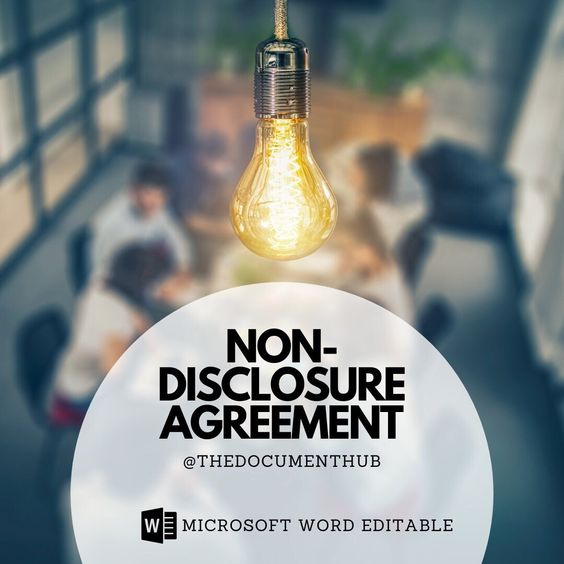



In today’s competitive business environment, non-compete agreements have become increasingly common as employers seek to protect their proprietary information and trade secrets. However, for employees and entrepreneurs, these agreements can feel restrictive, leaving them wondering about their rights and legal options. Whether you’re an employer seeking to draft a non-compete or an employee bound by one, understanding the ins and outs is crucial. This blog provides essential legal advice for non-compete agreements, covering everything you need to know before signing, enforcing, or challenging such contracts.

A non-compete agreement is a contract where an employee agrees not to enter into competition with an employer after the employment period ends. Typically, this involves refraining from joining a competing business or starting a similar business within a specified geographical area and time frame. While non-competes aim to protect business interests, they must be balanced against an individual’s right to earn a living.
Understanding these contracts’ full scope is vital, and legal advice for non-compete agreements should always be sought before signing. A well-crafted agreement can protect a company’s intellectual property, client lists, and trade secrets. However, overly restrictive clauses may be unenforceable in court, especially if they unduly limit an employee’s ability to work.
Employers utilize non-compete agreements for several reasons:
For those seeking legal advice for non-compete agreements, it’s important to remember that employers often include these clauses to secure their business interests. However, overbroad restrictions can lead to disputes, so carefully crafted agreements are key.
One of the most common questions regarding non-compete agreements is whether they are enforceable. The enforceability of these contracts varies widely depending on jurisdiction and the specific terms. Generally, courts assess the following factors:
In some states, non-competes are outright banned or severely limited. If you’re unsure whether a non-compete agreement is enforceable in your area, obtaining legal advice for non-compete clauses is essential.
While non-competes serve a purpose for employers, they can be a double-edged sword for employees. For instance:
When considering legal advice for non-compete agreements, employees should weigh the contract’s long-term impact on their careers.
If you’ve signed a non-compete and now find yourself restricted by its terms, you may have legal grounds to challenge it. Here’s how:
Before deciding to breach a non-compete, seeking expert legal advice for non-compete agreements is highly recommended.

For employers, a well-drafted non-compete is crucial to ensure enforceability and avoid legal disputes. Here are some tips:
Legal advice for non-compete agreements is invaluable in drafting a contract that protects your interests while remaining legally sound.
For More Informations click here
Whether you’re an employer or employee, having legal counsel can be the difference between a non-compete that works in your favor and one that leads to lengthy disputes. An experienced attorney can:
Navigating non-compete agreements without professional guidance is risky. Seeking legal advice early on can save significant time, money, and stress.
Q: Are non-compete agreements legal in all states?
A: No, non-compete agreements are not enforceable in some states, like California, which bans them in most employment contexts. It’s essential to understand your state’s laws before entering into such an agreement.
Q: Can I negotiate the terms of a non-compete agreement?
A: Yes, non-compete agreements are negotiable. You can request changes to reduce the geographical scope, shorten the duration, or clarify what constitutes competition.
Q: What happens if I violate a non-compete agreement?
A: Violating a non-compete agreement can lead to legal action, including lawsuits and financial penalties. It’s best to seek legal advice for non-compete violations before taking any actions that might breach the contract.
Q: How long do non-compete agreements typically last?
A: The duration varies, but most non-competes range from six months to two years. Longer restrictions may be deemed unreasonable by courts.
Q: Can my employer prevent me from working in my industry?
A: Non-compete agreements can restrict you from working in specific roles or industries, but the scope must be reasonable. Courts are less likely to enforce agreements that impose broad restrictions.
Q: How does a non-compete agreement differ from a non-disclosure agreement (NDA)?
A: A non-compete agreement restricts an employee from working with competitors or starting a competing business within a specified time and region after leaving a company. On the other hand, a non-disclosure agreement (NDA) focuses on confidentiality, ensuring that an employee does not disclose proprietary information or trade secrets during and after employment. While NDAs are more broadly accepted and enforceable, non-compete agreements are subject to more scrutiny due to their potential to limit an individual’s ability to work.
Q: Can I be forced to sign a non-compete agreement after starting my job?
A: Yes, employers can ask you to sign a non-compete agreement even after you’ve already started your job. However, for the agreement to be legally binding, there may need to be additional consideration, such as a raise, promotion, or some other benefit. Simply asking you to sign without offering something in return may not be enforceable in some states. If you’re asked to sign a non-compete after starting your job, it’s wise to seek legal advice for non-compete agreements to understand your rights.
Q: Can independent contractors be required to sign non-compete agreements?
A: Yes, independent contractors can be asked to sign non-compete agreements, but the enforceability of such agreements is often less straightforward than for employees. Courts may scrutinize non-competes involving contractors more closely, particularly if the contractor is classified as such to avoid providing employment benefits. The key issues usually revolve around the fairness of the restriction and the legitimate business interests it seeks to protect. Contractors should carefully review and consider obtaining legal advice before signing a non-compete agreement, as it could impact their ability to work with other clients.

Q: Are there specific industries where non-compete agreements are more common?
A: Non-compete agreements are more common in industries that rely heavily on trade secrets, proprietary information, or client relationships. Examples include:
If you work in one of these sectors, it’s crucial to fully understand any non-compete clauses you encounter and seek legal advice tailored to your industry.
Q: What happens if I don’t sign a non-compete agreement?
A: If an employer requires a non-compete as a condition of employment and you refuse to sign, they can withdraw the job offer or even terminate your employment. In some cases, refusing to sign might lead to negotiations for more favorable terms. If you’re already employed and asked to sign a non-compete without additional benefits being offered, you may have more leverage to negotiate. However, always seek legal advice for non-compete situations to assess your options without jeopardizing your job.
Q: Can non-compete agreements be enforced internationally?
A: Enforcing non-compete agreements across international borders is complex. The enforceability depends on the laws of the countries involved, and many jurisdictions outside of the United States have different perspectives on restrictive covenants. For example, European countries tend to favor employee mobility and may impose stricter regulations on non-compete clauses. Before agreeing to an international non-compete agreement, both employers and employees should consult legal experts familiar with cross-border contracts.
Q: Are there alternatives to non-compete agreements?
A: Yes, there are alternatives that provide similar protections without the harsh restrictions of a non-compete:
Exploring these alternatives and seeking legal advice for non-compete alternatives can provide protection for businesses while being less restrictive on employees.
Q: What should I do if I’ve already signed a non-compete but received a better job offer?
A: If you’ve signed a non-compete and now have a more attractive job offer from a competing company, your first step should be to review the non-compete agreement carefully. Determine the scope of the restrictions and whether the new job falls within those limits. If it does, consider consulting with a lawyer who specializes in employment law. In some cases, you may be able to negotiate a release from the agreement, especially if the new role doesn’t directly compete or if the employer is willing to waive the restriction. Legal advice is crucial before making any moves that might violate a non-compete agreement.
Non-compete agreements are complex contracts that require careful consideration from both employers and employees. For employees, these agreements can have a lasting impact on career growth and job opportunities. For employers, a well-drafted non-compete is a vital tool for protecting business interests. By seeking tailored legal advice for non-compete agreements, you can ensure that the terms are fair, enforceable, and aligned with your goals. Whether you’re signing, enforcing, or challenging a non-compete, understanding your rights and responsibilities is essential for avoiding costly disputes and safeguarding your future.
For More Informations click here